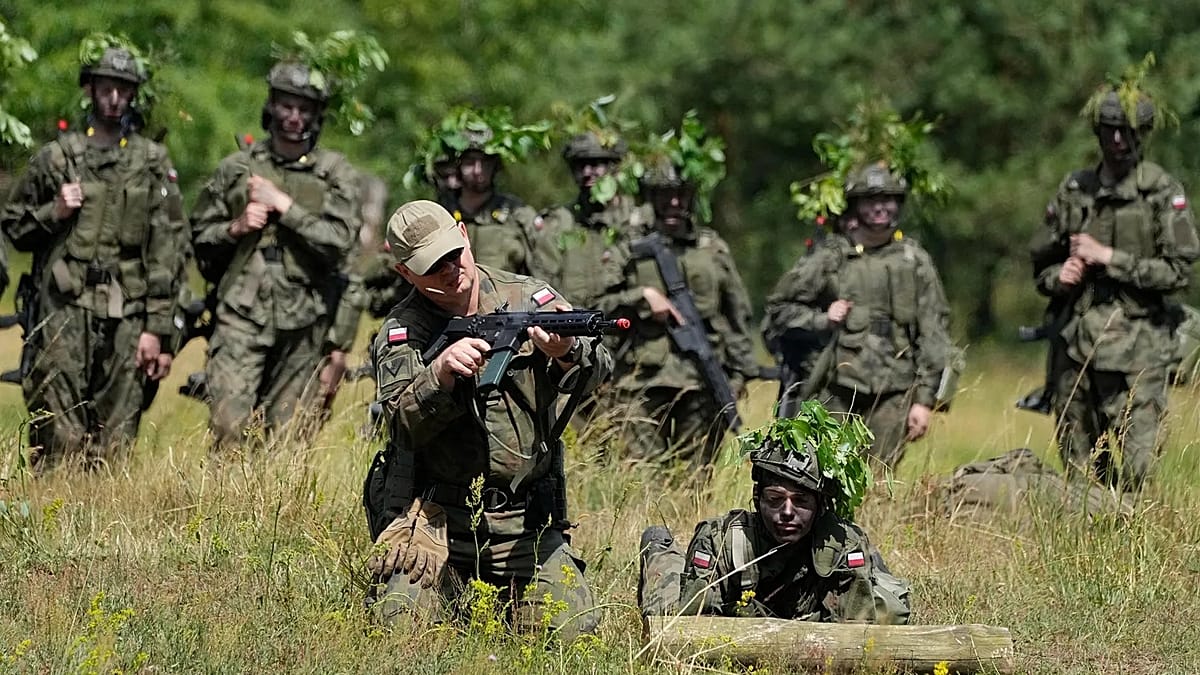Poland has unveiled a new programme of universal and voluntary military training.
The so-called “wGotowości” (mReadiness) programme was announced by Chief of General Staff Gen Wieslaw Kukuła, Deputy Prime Minister and Minister of Defence Władysław Kosiniak-Kamysz and Deputy Head of the Ministry of Defence Cezary Tomczyk.
During a press conference, Kukuła explained that the programme envisages five lines of focus across two different pathways.
“Firstly, to strengthen the individual resilience of citizens and secondly to strengthen the availability, resilience and competence of the reserves,” he said.
Importantly, resilience defence training is not equivalent to military service, nor does it culminate in an oath or entry on the reservists’ list.
Kukuła also stressed that “the fundamental objective is to build deterrence capability.”
“That is, to bring about a situation in which no reasonable person would decide to attack Poland because of the potential we will have at our disposal.”
The training will cover practical skills such as first aid, crisis survival, cyber hygiene and security basics. The sessions are one-day and will be held on weekends, as close to home as possible and those willing can choose a military unit.
The Ministry of Defence wants to encourage companies to send employees to joint training sessions.
According to Deputy Prime Minister and Minister of National Defence Władysław Kosiniak-Kamysz, the wGotowości programme is unique in NATO.
“In my opinion, there is no other country that would engage all its forces and resources so extensively and reach out to citizens so easily.”
The initiative is part of the government’s wider plans. In March this year, Prime Minister Donald Tusk reported on a similar programme, estimating that Poland would reach a military training capacity of 100,000 volunteers per year by 2027.
Poles divided on commitment to national defence
Poland has been at the centre of several security incidents since Russia’s full-scale invasion of Ukraine more than three years ago.
Particularly high-profile was the violation of Polish airspace by Russian drones in September 2025. The situation triggered a NATO response and sparked discussions about the country’s defence preparedness.
Public opinion polls paint a divided picture on whether Poles themselves are prepared for a conflict scenario.
According to an IBRiS survey for Radio ZET in August 2025, 44.8% of respondents declared that they would volunteer to defend the country in a war situation. In contrast, 49.1% responded negatively and 6.1% were undecided.
One in three Polish women said they would be ready to fight, while among men, more than half (54%) said so. The youngest are least enthusiastic; in the 18-29 age group, 69% said they would not come to the country’s defence.
Almost half of Poles do not trust the army
An optimistic interpretation is offered by psychologist Professor Adam Tarnowski of the Nicolaus Copernicus University in Toruń. In an interview with Euronews, he stressed that the results of the poll can be interpreted as positive.
“Although this percentage seems small, with only about one quarter of people ready to defend the country, it is possible to form quite a decent army from this quarter.”
Tarnowski points to another key problem: a lack of trust in the army. “Only half of Poles more or less state that our army would be able to defend the country. Therefore, enlisting in the army, which in the perception of these people is an army incapable of defending itself effectively, is also to be understood here as such a refusal response.”
“If I am going to the army, I would like to be sure that I will be well trained and well commanded,” he explains.
In this statement, the psychologist refers to research by the Pollster centre from August 2025, which shows that only 41% of Poles believe in the Polish Army’s ability to defend the country, while 48% have doubts.
Asked whether this reluctance to enlist is a sign of the times, Tarnowski recalls the strong pacifism that also prevailed before the Second World War.
“Perhaps the times are formatting us differently at the moment, but they are still the same people and at the end of the day they would react in a similar way. That is – as always – those who can, will help. Those who need to get on with their business will get on with their business, which is also important.”

